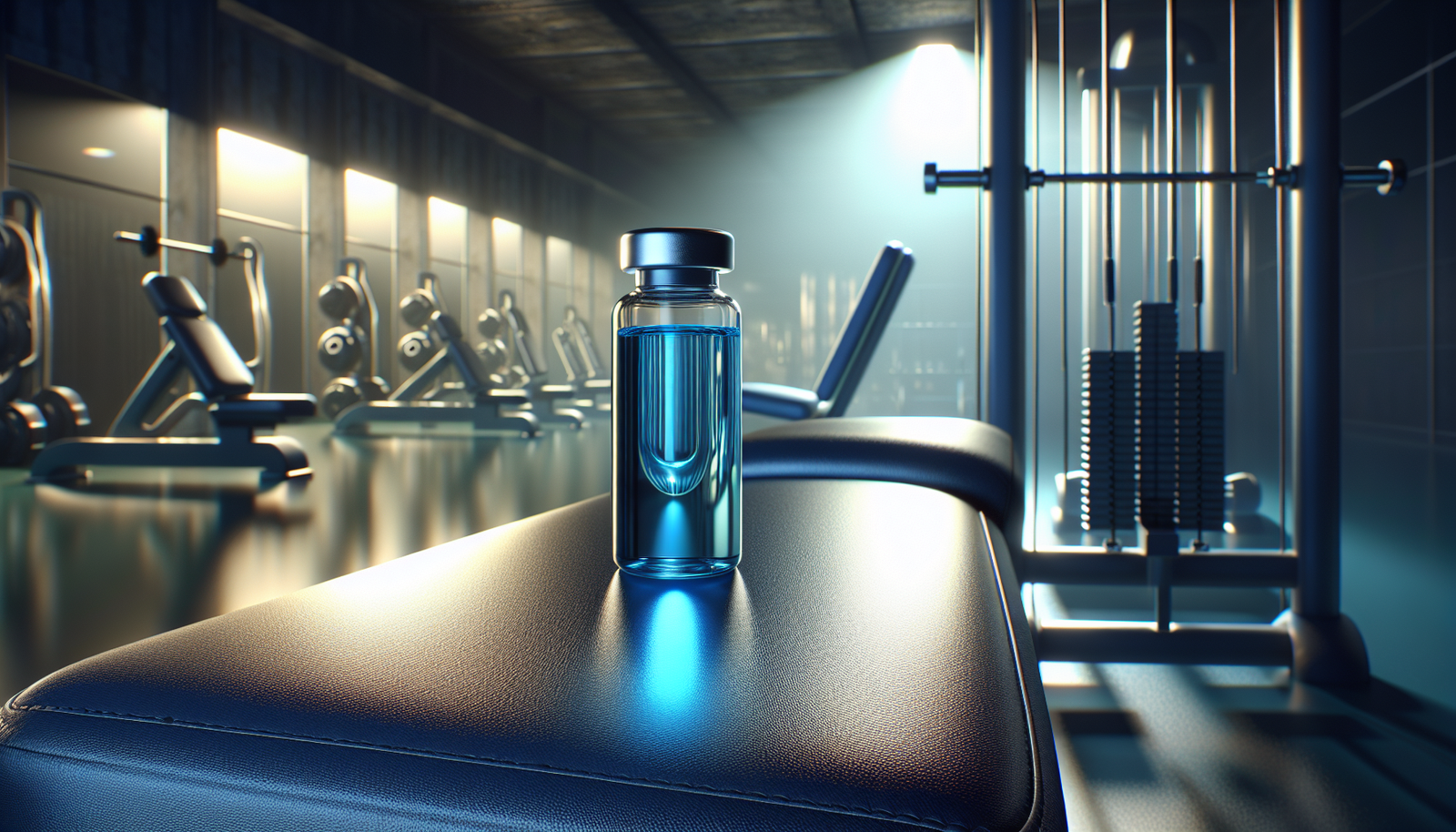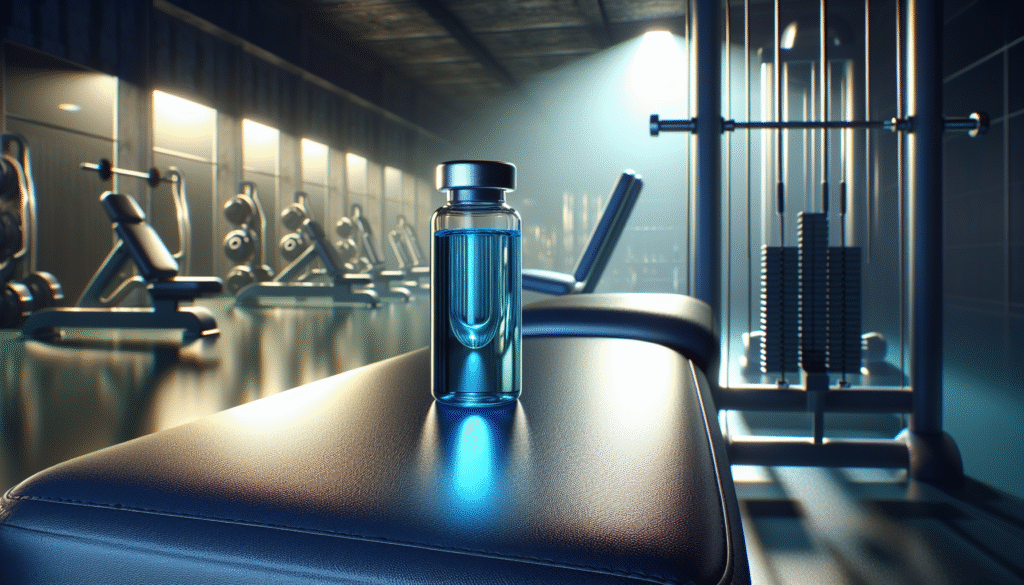
Have you ever wondered if Methylene Blue could enhance your athletic performance or boost your overall health? This intriguing compound has garnered attention in recent years, particularly in sports science circles. As you investigate the potential benefits, controversies, and the underlying science, it’s essential to navigate the landscape with precision and discernment.

Understanding Methylene Blue
Methylene Blue is a synthetic compound initially developed as a dye in the late 19th century. Its use has persisted in various fields, including medicine and biology. As a medication, it serves primarily as an antidote for methemoglobinemia, a condition where the blood’s capacity to carry oxygen is compromised. More recently, its potential benefits have extended to athletic performance and cognitive enhancement.
History of Methylene Blue
Originally synthesized in 1876, Methylene Blue was one of the first synthetic dyes. Its medical applications quickly emerged due to its staining properties and ability to convert methemoglobin back to hemoglobin. The compound has been studied for its effects on cellular respiration and mitochondrial function, leading to its exploration in other fields, including sports performance.
How Methylene Blue Works
Methylene Blue functions primarily as an electron transport chain enhancer within the mitochondria of cells. This enables more efficient energy production, which is crucial during physical exertion. When you engage in strenuous activities, your body demands increased energy, and any boost in mitochondrial efficiency can lead to enhanced performance and endurance.
Methylene Blue in Athletic Performance
In its role associated with sports performance, Methylene Blue is touted for several potential benefits. These claims need to be critically examined against the backdrop of existing scientific literature.
Increased Endurance
One of the primary arguments for the use of Methylene Blue among athletes is its potential to enhance endurance. Research suggests that it may improve mitochondrial function and increase ATP (adenosine triphosphate) production. Increased ATP levels can improve your muscle performance and delay fatigue.
Enhanced Recovery
Recovery plays a crucial role in an athlete’s performance. Methylene Blue might facilitate faster recovery by reducing oxidative stress and inflammation in the muscles post-exercise. If you find yourself struggling with muscle soreness or prolonged fatigue, understanding the potential effects of Methylene Blue could be worthwhile.
Cognitive Benefits During Competition
Competitive sports often demand not only physical prowess but also mental acuity. Methylene Blue has been explored for its neuroprotective properties, possibly enhancing focus and cognitive function. This could be an advantage when microseconds matter in a race or decision-making on the field.
Scientific Evidence Supporting Methylene Blue
While anecdotal claims abound regarding the efficacy of Methylene Blue in enhancing sports performance, it is essential to ground these discussions in reliable scientific findings.
Clinical Studies and Findings
Research on Methylene Blue has shown promising results, with several studies suggesting improvements in mitochondrial function. For instance, one study highlighted its role in enhancing aerobic metabolism in subjects, potentially leading to increased endurance during high-intensity exercise.
Table: Summary of Key Studies
| Study | Focus | Findings |
|---|---|---|
| 1 | Mitochondrial function | Improved ATP production |
| 2 | Endurance performance | Increased time to exhaustion |
| 3 | Cognitive function | Enhanced focus and reaction time |
Limitations and Considerations
While current findings are encouraging, it’s crucial to approach conclusions with caution. Many studies involve small sample sizes or specific populations, which may limit the applicability of the findings to broader athletic contexts. Additionally, Methylene Blue may not be beneficial for everyone and could come with potential side effects, particularly when consumed in excessive amounts.
Potential Side Effects of Methylene Blue
As with any supplement or medication, understanding potential side effects is imperative. Methylene Blue use can lead to various adverse effects, particularly if not administered correctly.
Common Side Effects
- Urine Discoloration: One of the most commonly reported side effects is a bluish tint to urine, which is generally harmless.
- Gastrointestinal Issues: Some individuals may experience nausea, vomiting, or diarrhea after ingestion.
- Allergic Reactions: In rare cases, allergic reactions can occur, manifesting as rash, itching, or respiratory issues.
Serious Risks
More serious risks include:
- Methemoglobinemia: Ironically, excessive dosages can lead to methemoglobinemia, counteracting the drug’s intended purpose.
- Drug Interactions: Methylene Blue can interact adversely with certain medications, particularly those prescribed for depression and mood disorders.

Legal and Regulatory Status
Another essential aspect to consider is the legal and regulatory status of Methylene Blue, especially in the sports world. Its classification may vary depending on jurisdiction and sporting organizations.
In Sports Organizations
Several sports organizations have been scrutinizing various substances for performance enhancement potential. Methylene Blue is generally not banned, but it is wise to stay informed about your specific sport’s regulations. Always review the prohibited substances list from your governing sports body to avoid any potential violations.
Purchase and Usage
When considering its use, it is critical to obtain Methylene Blue from reputable sources. Dietary supplements can often be of questionable quality, and fraudulent claims regarding safety and efficacy are not uncommon in the industry. Thus, only purchase from trusted manufacturers and consult with healthcare professionals regarding appropriate dosages.
Alternative Methods for Enhanced Athletic Performance
While Methylene Blue offers intriguing potential for sports performance enhancement, various other effective strategies exist to maximize your athletic capabilities.
Nutrition and Hydration
Proper nutrition fuels your body and plays a significant role in enhancing athletic performance. Consider the following:
- Balanced Diet: Ensure your diet is rich in whole foods, incorporating a variety of proteins, carbohydrates, and healthy fats.
- Hydration: Maintaining proper hydration levels is crucial, as even mild dehydration can impair performance.
Training Regimen
A structured training plan is essential for any athlete aiming to improve their performance. Various components can be tailored to your individual needs:
- Strength Training: Increasing muscle strength can translate to better power and speed.
- Endurance Training: Incorporate long-distance runs, cycling, or swimming to build your aerobic capacity.
Mental Preparation
Mental fortitude can be just as important as physical readiness. Techniques such as visualization, meditation, and goal-setting can significantly enhance your focus and confidence during competition.
Conclusion
As you weigh the potential of Methylene Blue for enhancing your athletic performance, it becomes clear that you must approach the subject with a critical eye. While the scientific evidence presents promising insights, individual results may vary greatly. It is vital to base your decisions on comprehensive research and professional guidance, rather than succumbing to trends or anecdotal evidence.
Ultimately, the quest for improved performance is a multifaceted journey that encompasses not only exploration of potential supplements but also dedication to nutrition, training, and mental preparation. Taking proactive steps toward your fitness goals will yield the best results, ensuring your endeavors in sports are as fulfilling and successful as possible.